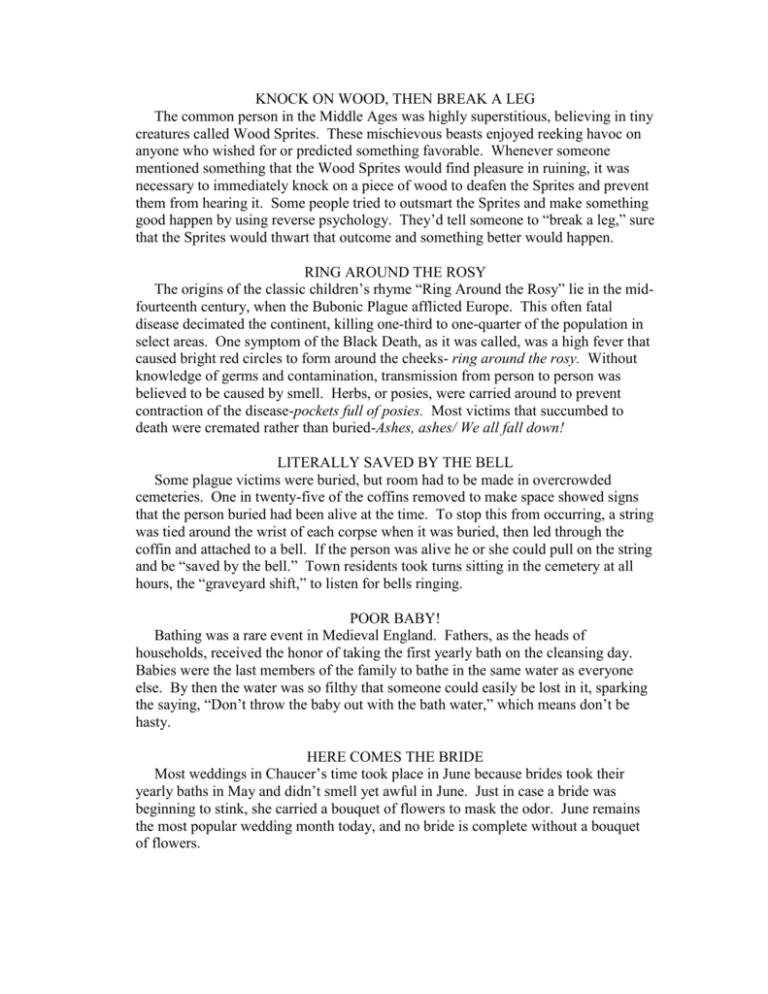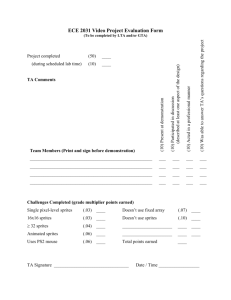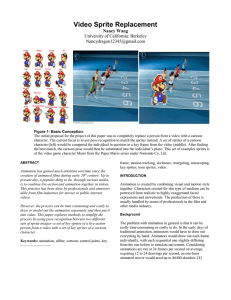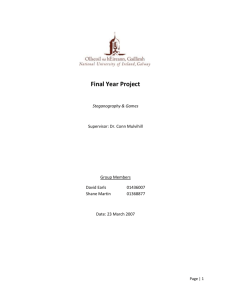Moyer D_Eng_medieval..
advertisement

KNOCK ON WOOD, THEN BREAK A LEG The common person in the Middle Ages was highly superstitious, believing in tiny creatures called Wood Sprites. These mischievous beasts enjoyed reeking havoc on anyone who wished for or predicted something favorable. Whenever someone mentioned something that the Wood Sprites would find pleasure in ruining, it was necessary to immediately knock on a piece of wood to deafen the Sprites and prevent them from hearing it. Some people tried to outsmart the Sprites and make something good happen by using reverse psychology. They’d tell someone to “break a leg,” sure that the Sprites would thwart that outcome and something better would happen. RING AROUND THE ROSY The origins of the classic children’s rhyme “Ring Around the Rosy” lie in the midfourteenth century, when the Bubonic Plague afflicted Europe. This often fatal disease decimated the continent, killing one-third to one-quarter of the population in select areas. One symptom of the Black Death, as it was called, was a high fever that caused bright red circles to form around the cheeks- ring around the rosy. Without knowledge of germs and contamination, transmission from person to person was believed to be caused by smell. Herbs, or posies, were carried around to prevent contraction of the disease-pockets full of posies. Most victims that succumbed to death were cremated rather than buried-Ashes, ashes/ We all fall down! LITERALLY SAVED BY THE BELL Some plague victims were buried, but room had to be made in overcrowded cemeteries. One in twenty-five of the coffins removed to make space showed signs that the person buried had been alive at the time. To stop this from occurring, a string was tied around the wrist of each corpse when it was buried, then led through the coffin and attached to a bell. If the person was alive he or she could pull on the string and be “saved by the bell.” Town residents took turns sitting in the cemetery at all hours, the “graveyard shift,” to listen for bells ringing. POOR BABY! Bathing was a rare event in Medieval England. Fathers, as the heads of households, received the honor of taking the first yearly bath on the cleansing day. Babies were the last members of the family to bathe in the same water as everyone else. By then the water was so filthy that someone could easily be lost in it, sparking the saying, “Don’t throw the baby out with the bath water,” which means don’t be hasty. HERE COMES THE BRIDE Most weddings in Chaucer’s time took place in June because brides took their yearly baths in May and didn’t smell yet awful in June. Just in case a bride was beginning to stink, she carried a bouquet of flowers to mask the odor. June remains the most popular wedding month today, and no bride is complete without a bouquet of flowers. TAKE COVER Canopy beds, today a luxury item, were invented out of necessity. Medieval houses had thatch roofs, which allowed insects and small rodents to fall through onto the bed. A sheet was hung between four poles surrounding the bed to block the falling creatures, and the canopy bed was born. THRESHOLD OF WEALTH The homes of peasants in Medieval England were made of dirt, hence the saying “dirt poor.” The wealthy could afford to construct floors out of stone, but that unfortunately became slippery when wet. Straw, or thresh, was spread over the floor to minimize slipping. Eventually the layer of straw became so high that it would fall out of the house when the door was opened, so a board was nailed below the door to hold the thresh in place. Homeowners welcoming guests reminded them to “Step over the threshold” when entering the building. PARDON MY FRENCH The expression “pardon my French” is often used before one is going to say something vulgar. This originated early in England due to the long-standing feud of that nation with France. The English considered the French to be vile people, and so anything disgusting was termed “French.” CHEWING THE FAT Meat was a rare commodity throughout much of history. It was a sign of wealth for a man to “bring home the bacon.” When family could obtain pork, everyone in town would gather at the household for a piece of animal meat and “chew the fat” while socializing. Today the expression refers to talking or gossiping.









